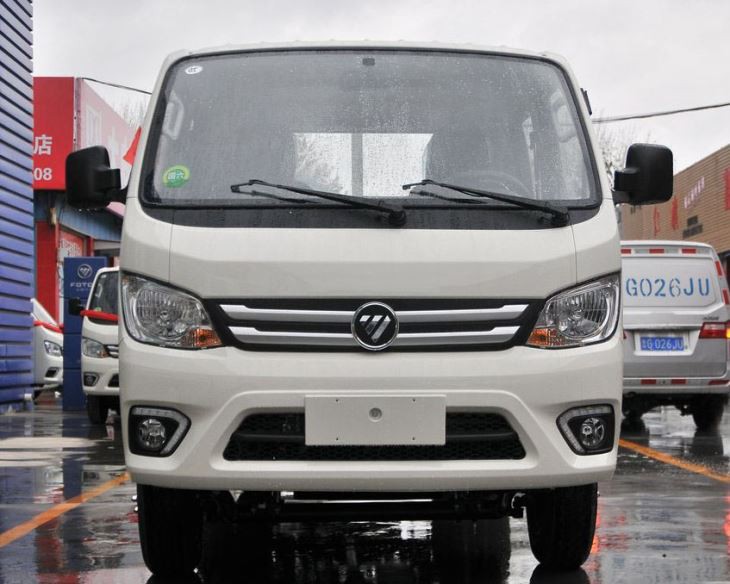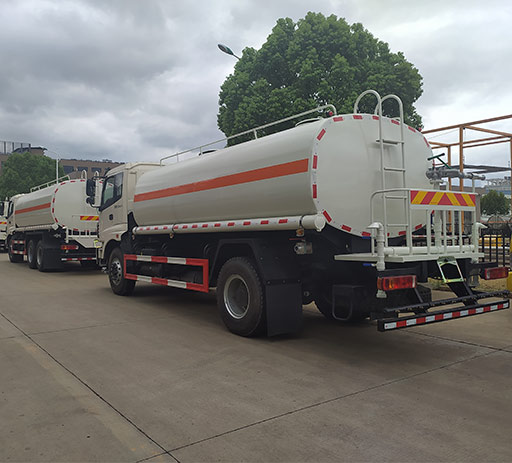Everything You Need to Know About Roll-Off Trucks

Introduction
Roll-off trucks are an essential component in the waste management and construction industries, offering a versatile and efficient solution for transporting large quantities of materials. With their unique design, these trucks enhance the process of loading and unloading waste containers, making them a preferred choice for various applications. In this article, we will explore what roll-off trucks are, their benefits, how they work, maintenance tips, and much more. By the end, you’ll have a comprehensive understanding of roll-off trucks and their significance in different sectors.
What is a Roll-Off Truck?
A roll-off truck is a specialized type of truck designed to carry roll-off containers, which are large bins used for waste disposal and material transport. These trucks have a hydraulic system that allows them to roll the containers on and off the truck bed, offering an efficient loading and unloading process. They are commonly seen at construction sites, demolition jobs, and waste management facilities.
Key Components of a Roll-Off Truck
- Chassis: The truck’s base structure that supports the weight of the load.
- Hydraulic System: Enables the mechanism that rolls the container on and off the truck.
- Roll-Off Containers: Large bins available in various sizes for different types of waste.
- Winches: Used to pull the container onto the truck.
Types of Roll-Off Trucks
1. Standard Roll-Off Trucks
These trucks are equipped with basic functionalities for loading and unloading roll-off containers. They are widely used for general waste disposal.
2. Chain-Driven Roll-Off Trucks
Chain-driven models use a chain system to roll the container on and off. This type is sturdy and can handle heavier loads.
3. Cable-Driven Roll-Off Trucks
In cable-driven trucks, a cable winch mechanism rolls the container. These models are efficient in various environments and can handle different types of containers.
Benefits of Using Roll-Off Trucks
1. Efficiency
Roll-off trucks streamline the process of transporting large amounts of waste or materials, making them suitable for fast-paced environments.
2. Versatility
They can be used in numerous applications, including construction sites, residential cleanouts, and industrial facilities.
3. Cost-Effective
By minimizing the time needed for loading and unloading, roll-off trucks help companies reduce labor costs and improve productivity.
4. Safe Operation
These trucks are designed to operate safely, with features that reduce the risk of accidents during loading and unloading.
How Do Roll-Off Trucks Work?
The operation of a roll-off truck is relatively straightforward. Here’s a step-by-step breakdown:

Step 1: Positioning the Truck
First, the driver positions the roll-off truck near the container. Ensuring ample space and a flat surface is crucial for safe loading.
Step 2: Hooking the Container
The driver uses the truck’s hydraulic system to lower the roll-off mechanism. They then hook the container using the winch or chain system.
Step 3: Loading the Container
Once hooked, the hydraulic system lifts the container, allowing it to roll onto the truck bed. This process can be done quickly and efficiently.
Step 4: Transporting the Container
After loading, the driver secures the container and transports it to the designated location for disposal or further processing.
Step 5: Unloading the Container
To unload, the driver reverses the process: lowers the hydraulic system and allows the container to roll off. It is then positioned as needed.
Maintenance Tips for Roll-Off Trucks
1. Regular Inspections
Perform routine checks on the hydraulic system, brakes, tires, and overall truck condition to ensure it is functioning properly.
2. Hydraulic Fluid Checks
Monitor hydraulic fluid levels and replace them as per the manufacturer’s guidelines to prevent system failures.
3. Keep the Truck Clean
Cleaning the truck regularly helps prevent rusting and maintains its aesthetics. It also allows for easier performance checks.
4. Schedule Professional Servicing
Consider hiring professionals for more complex maintenance tasks. Regular servicing can prevent major issues and extend the truck’s lifespan.
5. Train Operators
Ensure that all operators are adequately trained on safe operational procedures to reduce accidents and enhance efficiency.
Choosing the Right Roll-Off Truck for Your Business
1. Assess Your Needs
Determine the volume of waste or materials you need to transport regularly. This will guide you in selecting the appropriate size of the truck and containers.
2. Consider Local Regulations
Check local regulations regarding waste management and truck operation to ensure compliance before purchasing or renting a roll-off truck.
3. Review Your Budget
Establish a clear budget. Consider not just the purchase price but also the long-term maintenance and operational costs.
4. Evaluate the Supplier
Research various suppliers. Look for reliable companies with a proven track record of customer service and product quality.
Practical Examples of Roll-Off Truck Uses
1. Construction Sites
Roll-off trucks are extensively used in construction sites for transporting debris, scrap materials, and excess soil. They provide an effective way to keep the site clean and organized.
2. Home Renovations
During home renovations, homeowners can rent roll-off containers to dispose of old furniture, flooring, and other waste, making the renovation process more manageable.
3. Disaster Recovery
After natural disasters, roll-off trucks are crucial in cleaning up debris swiftly, helping communities to recover and rebuild quickly.
4. Industrial Applications
In manufacturing and industrial sectors, roll-off trucks transport bulk materials, scrap metal, and other waste products efficiently, supporting a clean and organized operation.
Roll-Off Truck Rental vs. Purchase
1. Rental Advantages
- No large upfront costs.
- Flexibility to choose truck size based on the project.
- Access to newer models without long-term commitment.
2. Purchase Advantages
- Long-term savings with frequent use.
- Control over maintenance and operation.
- Asset building for your business.
Frequently Asked Questions (FAQs)

1. How much can a roll-off truck carry?
Roll-off trucks can typically carry between 10,000 to 40,000 pounds, depending on the truck model and size of the roll-off container.
2. What types of materials can be loaded into roll-off containers?
Roll-off containers can carry construction debris, household waste, yard waste, concrete, and metals, among others. It’s important to check local regulations for specific restrictions.
3. How long can I rent a roll-off truck for?
The rental period for a roll-off truck can range from a few days to several weeks, depending on the rental company’s policies and your specific project needs.
4. Is a special license needed to operate a roll-off truck?
Yes, a commercial driver’s license (CDL) is generally required to operate a roll-off truck legally. Ensure that operators are properly trained and licensed.
5. Can I use a roll-off truck in residential areas?

Yes, roll-off trucks can be used in residential areas. However, it’s vital to check with local authorities for any permits or restrictions on weight limits and parking.
6. What are the typical sizes of roll-off containers?
Common sizes for roll-off containers include 10, 20, 30, and 40 cubic yards. The choice of size should correspond to the volume of waste you anticipate.
